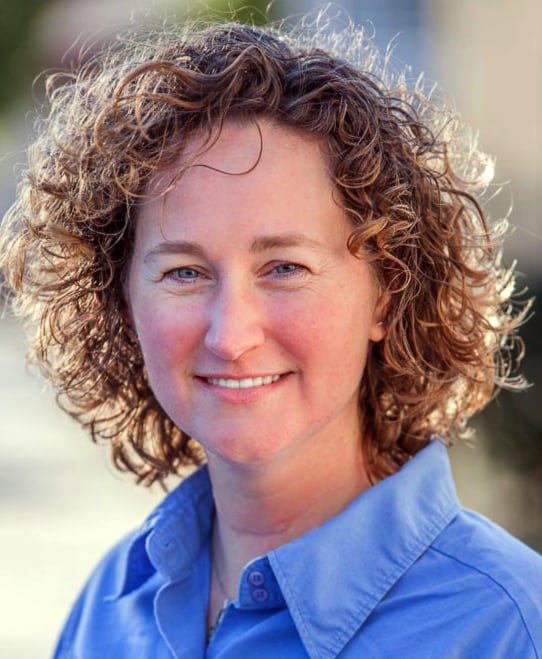 The following post is from Trista L. Carr, Psy.D. Dr. Carr is a Clinical Psychologist and has a private practice in San Francisco, CA. She completed her doctorate inclinical psychology at Regent University in Virginia Beach, VA, where she was a research assistant for the Institute for the Study of Sexual Identity. She obtained an M.A. degree in Community Counseling from The University of Akron in Ohio. Her research and clinical interests are in the integration of Christian faith, psychology, and sexual identity concerns. She can be found at http://www.tristacarr.com.
The following post is from Trista L. Carr, Psy.D. Dr. Carr is a Clinical Psychologist and has a private practice in San Francisco, CA. She completed her doctorate inclinical psychology at Regent University in Virginia Beach, VA, where she was a research assistant for the Institute for the Study of Sexual Identity. She obtained an M.A. degree in Community Counseling from The University of Akron in Ohio. Her research and clinical interests are in the integration of Christian faith, psychology, and sexual identity concerns. She can be found at http://www.tristacarr.com.
A few weeks ago I posted a piece entitled “Why I seem wishy-washy” on my blog in which I attempted to explain why my tweets might come across as wavering on my stance regarding sexual minorities. What ended up transpiring was a wonderful discussion on forgiveness.
Thus, for my second post here with The Marin Foundation, I wanted to expound on the concept of forgiveness as I feel like it is the cornerstone of bridge-building and reconciliation—the mission and vision of the Foundation.
I truly believe that forgiveness is something we really need to grasp. But I do not feel as though we, as a Christian people, have done a good job of explaining or demonstrating forgiveness. We speak of it to no end. But we do so with a cloud of “shoulds” hanging over every syllable. We even tell people who are angry, or people who have been wounded, “You just have to forgive and forget.”
In my therapy practice I often ask my clients what they think is the definition of forgiveness. Time and time again I hear that phrase, “forgive and forget”. But when I press further for a definition, most people say something like this: “Forgiveness means to let go [of an offense].” And, if they are professing Christians and speak “Christianeese,” they might even say, “Forgiveness means to let go and let God”—and I try not to chuckle.
But, this brings me to question: How can we truly forgive if we don’t really know (1) what it means to forgive, (2) what the process of forgiveness is like, or (3) why forgiveness is really important? To say it differently, how can we begin to build bridges and reconcile wounded relationships if we don’t understand forgiveness?
What it means to forgive.
Simply put, forgiveness is giving up your right to hurt back. Much of the research on forgiveness uses this definition or one similar. Forgiveness does not mean I forget what happened. It just means that I am not going to keep hurting you back for hurting me.
I often have my clients write down exactly what transgression they are choosing to forgive and the name of the person who did them wrong. It reads something like this:
I give up my right to hurt <Insert Name> back for <Insert Offense>.
This type of exercise can be extremely powerful for victims of mild offenses as well as severe traumatic experiences such as assault or rape, and also even for loved ones of those murdered. (Journey Films produced a movie that explores the power of forgiveness related to these more severe types of tragedies.)
Something to keep in mind though is that once you choose to forgive someone it does not mean that you automatically trust that person. Moreover, for some people, it would be dangerous to try to build a relationship with their abuser(s) after forgiving.
It is important to note that forgiveness is not reconciliation—it is only a part of reconciliation. For reconciliation to occur, forgiveness must happen. At the same time, just because you have forgiven someone of an offense does not mean you have to reconcile the relationship. As I’ve noted previously, forgiveness is a one-way street. It only takes one person to forgive —the offended—yet it takes two people to reconcile—both the offender and offended. Thus both parties have to be willing to be in relationship to a certain extent for there to be a possibility of a bridge being built in that vein.
Said differently: Forgiving the offender does not equal trusting the offender. Whereas reconciling with the offender means that forgiveness has occurred and to some degree trust is being regained and the relationship is being salvaged—the foundation for a bridge is being built.
The process of forgiving.
Now that we have a little better understanding of what forgiveness is and isn’t, how do we do it?
Forgiveness is at least a two-step process (see the work of Dr. Robert Enright, & Dr. Everett Worthington). It is decisional and emotional. It starts off as a decision that you make. You get to choose whether or not you are going to forgive someone, regardless of how you feel about that decision.
Whether the wrong has been righted or not, we all have the cognitive ability to choose to release our right to personally seek revenge or harm to the perpetrator. “Forgiveness is not something that comes after justice has been accomplished” (http://www.thepowerofforgiveness.com/understanding/).
It usually takes a little while for the feelings of forgiveness to surface after we initially make the decision to forgive. We can sometimes easily say, “I forgive you,” but shortly thereafter reclaim our right to get back at the perpetrator. So the finishing process of emotional forgiveness never takes root and we never end up feeling forgiveness toward the other.
In order for emotional forgiveness to happen we have to be able to “walk out” the decisions we make to forgive. Meaning: After choosing to forgive someone try to do something to demonstrate that choice—act in a way that says, “I have forgiven” (e.g., say something genuinely nice about the person, pray blessing on the person, do something to help the person tangibly, etc.). These are hard things to do sometimes, especially when the transgression is severe abuse. The key to keep in mind though is that you are not doing things for the offender in order to build a relationship with this person, you are doing these positive things so that you will fully feel emotional freedom.
Which leads us wonderfully into my last point:
Why it is important to forgive.
Forgiveness is necessary for your health and wellbeing. There are multiple studies that show the damaging affects of unforgiveness in people’s lives and the positive affect of forgiveness.
The more we harbor unforgiveness, the more anger, resentment, and bitterness grow.
Anne Lamott (1999) captures this truth wonderfully in her book Traveling Mercies. She quips: “Not forgiving is like drinking rat poison & then waiting for the rat to die” (p. 134).
Forgiveness, on the other hand, allows us to be emotionally free to experience life and other relationships in ways that are not influenced by the residual negativity that comes with the abovementioned anger, resentment, and bitterness.
If we really want to build bridges with those whom we disagree—with those who have hurt us in the past—we have to start by forgiving the other party in order to really listen to and hear their concerns.
It is in this ability to honestly and earnestly listen to the other from a place of forgiveness and non-judgment that bridge-building, and ultimately, reconciliation can occur. This is the heart of God: That we be a people marked by loving and forgiving in the same way as he has loved and forgiven us.
Forgiveness is the ultimate foundation for bridge-building. Will you join me?
Much love.















